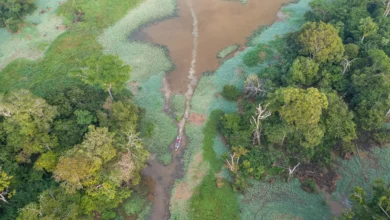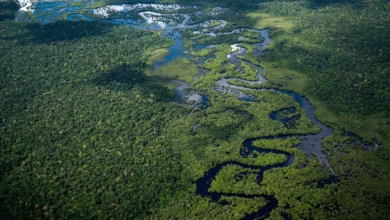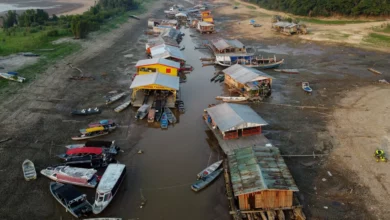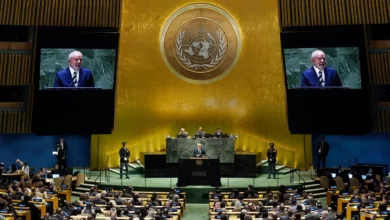LA PAZ – Sacha Llorenti, Bolivia's interior minister and a top official in leftist President Evo Morales' government, resigned over a violent weekend crackdown on protesting Amazon natives.
Llorenti has been the focus of fierce criticism since riot police fired tear gas and arrested hundreds on Sunday when they charged into a camp of activists protesting the planned building of a road through an Amazon rainforest nature preserve.
Llorenti Tuesday's move follows the resignation of defense minister Cecilia Chacon, who left office in disgust on Monday over the incident.
Replacements however were quickly sworn in: Wilfredo Chavez, a Morales loyalist, replaced Llorenti, while Ruben Saavedra, who was defense minister until April, took up his old job again. Morales swore them in late Tuesday.
The protests and fallout from the crackdown present a major challenge for the government of Morales, the country's first elected indigenous president, who has said the 300-km highway was vital for economic development.
Migration chief Maria Rene Quiroga also resigned over the crackdown, blasting it as "unforgivable."
Earlier in the day officials announced that deputy interior minister Marcos Farfan was resigning to be investigated over the incident.
"I'm not abandoning the ship because it was sinking, but to the contrary, I'm stepping aside with the humble goal of allowing the ship of the revolutionary process to advance with more speed," Llorenti told reporters as he announced his resignation.
Llorenti, a former human rights activist, said he was resigning in an attempt to avoid politicizing the incident and to defend himself from criticism over the crackdown.
Llorenti earlier said the police crackdown "had no instruction from the president nor authorization from the interior ministry," and blamed Farfan for the incident.
Farfan oversaw the police force which broke up the protests and acted "at the suggestion of some police officers," Llorenti said.
"He will have to take responsibility for the events of Sunday," the president's chief of staff Carlos Romero told reporters, referring to Farfan.
The Brazil-financed road would run through a nature preserve home to some home to some 50,000 natives from three different indigenous groups.
The road is part of a network linking land-locked Bolivia, South America's only mostly indigenous nation, to both the Pacific through Chile and the Atlantic through Brazil, a key outlet for Bolivian exports.
The government says it would be too costly to build the highway around the preserve.
Amazon natives also fear landless Andean Quechua and Aymara people – Bolivia's main indigenous groups and Morales supporters – will flood into the road area and colonize the region.
Morales late Monday suspended plans to build the road, but anger over the crackdown continues to brew. Protests include a national strike on Wednesday called by the Central Obrera Boliviana (COB), the country's powerful labor federation.
The Amazon protesters were among some 1000 indigenous people who began a march to La Paz one month ago, but they were halted by pro-government Bolivians blocking the road in the town of Yucumo in a bid to stop the march.
The protesters broke through the police blockade on Saturday by forcing the government mediator, Foreign Minister David Choquehuanca, to march with them. The following day police cracked down hard, arresting hundreds.
Pedro Nuni, an indigenous legislator who has been one of the protest leaders, said about 20 protesters remain unaccounted for.
In Washington, the State Department said the conflict "should be resolved peacefully through dialogue and consultation under Bolivian law and established international standards."




